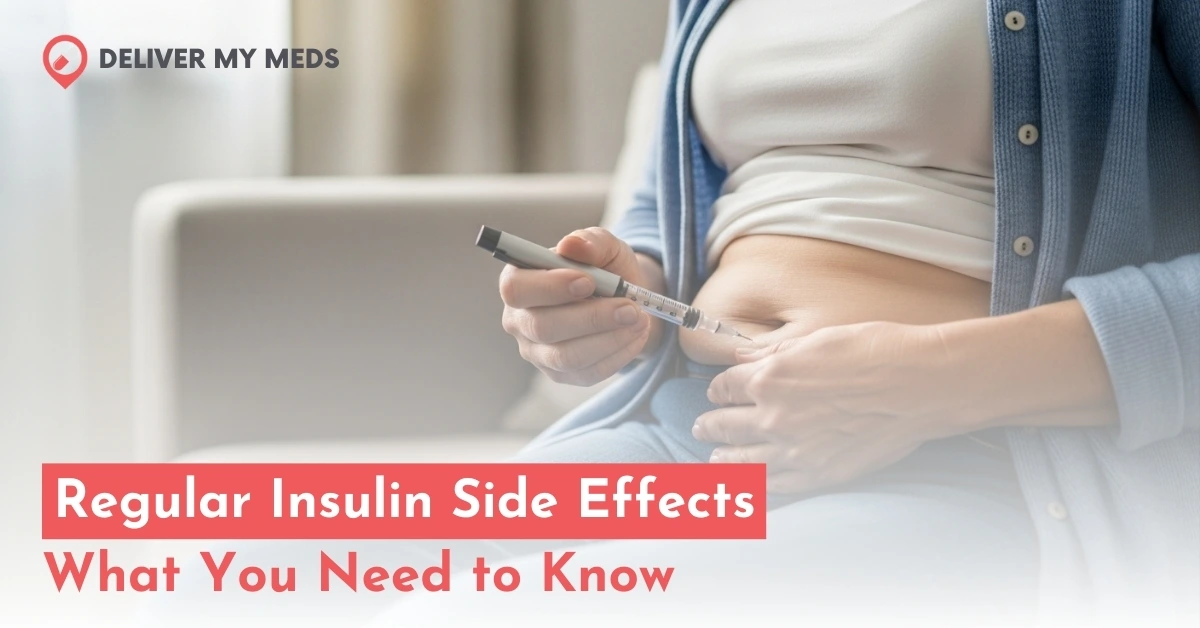
In the course of pregnancy, metabolic needs shift drastically. The body of a woman can create high levels of ketones as it burns fat rather than glucose to generate energy. Eating less food, too much vomiting, and weakened glucose regulation are all causes of this. Ketones in urine may indicate that you’re at risk for or already suffer from gestational diabetes, as well as an increase in insulin resistance.
Ketones need to be detected early through a urine or blood test with the attention of a specialist. Uncontrolled blood sugar levels can raise ketone levels, which can cause problems with the pregnancy outcome. To avoid sugar instability, use the latest CGM devices, including FreeStyle Libre 2 Sensor Kits and Libre 3 Readers, to help monitor blood sugar levels during pregnancy with medical-grade accuracy. Monitoring can save you and your baby, so understand the risks.
Normal Vs. High Ketone Levels in Pregnant Women
Ketones are derivatives of fat metabolism that are produced when the body has a deficiency of necessary glucose for energy. In pregnancy, this change can happen easily due to transformed glucose management and increased energy demands. Mild ketosis is normal during short fasting states or after vomiting; that’s when you can expect to see trace ketones in urine. But persistent elevations are serious, and they suggest disrupted carbohydrate metabolism or excessive fat breakdown. The reason it appears in urine is that the liver produces high levels of ketone bodies that need to be filtered by the kidneys, hence urination with ketones. (Source: NCBI)
What Do Ketone Levels Mean?
Ketones are produced in the liver; they are later filtered through the kidneys and expelled in urine. Here’s the Ketone ranges:
| Test Type | Normal | High |
| Blood | Less than 0.5 mmol/L | More than 1.0 mmol/L |
| Urine | None or trace | 1+ or higher |
Determining how many ketones to have during pregnancy helps stratify risk early. Based on the table, nutritional ketosis is blood ketone levels between 0.5-3.0 mmol/L. We’ll cover all major causes and diagnostic implications of ketosis during pregnancy in the next section.
Factors Leading to Ketones in Urine While Pregnant
The metabolic shift when fat is used as the body’s energy source in place of glucose is known as ketosis. Pregnant women are more vulnerable to this because pregnancy hormone changes and energy demands increase baseline ketone levels. Check out six clinically recognised causes of ketones in urine with pregnancy:
1. Gestational Diabetes and Glucose Dysregulation
Gestational diabetes causes the inability to metabolise glucose, which forces the body to burn fat. It’s the simple procedure that leads to ketone production. So, Ketones in urine may be an early sign of glucose imbalance. Use medical-grade CGMs, like FreeStyle Libre 2 Sensor Kits, to track blood sugar trends for earlier intervention during pregnancy.
2. Inadequate Caloric Intake or Fasting
Nutritional deficits, especially from carbohydrate-restricted plans, can trigger ketosis. An unplanned diet that boosts ketones in the urine during pregnancy means both lifestyle and food intake. It’s caused by long periods of fasting, a low-calorie diet or imbalanced macronutrients. In the absence of sufficient sugar, your body will metabolise fat to produce energy, resulting in an increase in urinary ketones as well as the risk of fetal birth.
3. Hyperemesis or Persistent Vomiting
Anything that consumes energy, either voluntarily or involuntarily, can result in higher amounts of ketones. The vomiting and nausea that are severe can decrease fluid and food intake, eat up energy and produce ketones. The prolonged vomiting that occurs, as in hyperemesis gravidarum, can be one of the major causes of increased urinary ketones, especially in the first trimester of pregnancy when the nutritional reserves are depleted.
4. Fluid Deficiency and Concentration Effects
Women who are pregnant often ask ” Does dehydration cause ketones in urine?” Yes it’s evident. Insufficient hydration can reduce ketones’ clearance from the kidneys. Pregnancy can increase the need for fluids, and dehydration, even in the smallest amount, can result in increased ketone levels in urine. If you notice less amount of daily urine or darker-colored urine, you must drink water to prevent amplification of metabolic stress.
5. Increased Energy Expenditure from Physical Activity
Engaging in high amounts of physical activity with inadequate nutritional support could cause the body to shift into metabolic fat. This results in ketone production, especially when carbohydrates are not replenished. Pregnant individuals with active lifestyles must maintain sufficient caloric and fluid intake to avoid exercise-induced ketosis.
6. Infection, Fever, or Systemic Illness
In the course of systemic illnesses, such as dengue or influenza, energy expenditure increases when appetite and intake decrease. This imbalance leads the body to burn fat, increasing ketone production. While it is often examined in children who have fever, the same physiological reaction can be observed in pregnant women suffering from illnesses.
Optimizing Glucose Monitoring During Pregnancy
There’s a typical pattern here: Ketone production results from reduced glucose regulation. Thus, monitoring continuously is crucial during pregnancy, particularly for those with diabetes or who are at risk. Deliver My Meds provides a variety of FDA-approved Continuous Glucose Monitors (CGMs). Use them for data-driven decisions in real-time, buy tools like Libre 3 Reader or Libre 2 Plus Sensor to monitor glucose levels!
Risks When Ketones Appear in Urine During Pregnancy
Ketones in the urine of a pregnant woman suggest that the body isn’t receiving adequate energy through diet. This can harm both the mother and baby. The risk increases when ketones remain high for a long time or when other warning signs are found during urine testing. Below are possible risks:
- Brain development problems in the baby, especially in early pregnancy.
- Low amniotic fluid, or early labour could be the result of dehydration that is linked to the buildup of ketone.
- A slow growth rate in the fetus or a birth weight loss could occur if the mother’s energy needs aren’t fulfilled.
- If the presence of urine proteins during pregnancy is present, the risk of developing conditions such as preeclampsia increases.
- Kidney stress and even kidney stones could increase with an ongoing increase in ketone levels.
- In the case of gestational diabetes, uncontrolled blood sugar may increase the production of ketones and cause harm to the placenta.
The diet is the most important one, so check 10 smart breakfast ideas for you that you can prepare at home easily.
How to Recognize Ketone Symptoms While Pregnant
High ketone levels symptoms are hard to pinpoint as they overlap with common pregnancy discomforts. However, continuous ketosis, especially when blood glucose is poorly controlled, can show up aggressively. Here are the main signs and symptoms that pregnant women experience regardless of diabetes that require prompt medical examination.
| With Diabetes | Without Diabetes |
| Abdominal Pain | Loss of appetite |
| Fruity-smelling breath | Dry mouth |
| Frequent urination (polyuria) and constant thirst (polydipsia) | Mild ketonuria after fasting or dehydration |
| Blood sugar over 200 mg/dL | Ketones appear after long gaps between meals. |
| Rapid breathing, confusion, or drowsiness (ketoacidosis symptoms) | Development of non-diabetic ketoacidosis |
| High risk of DKA | May not show symptoms until 80 mg/dL ketones in urine |
Clinical insight:
While ketoacidosis symptoms in non diabetic pregnancies are rare, cases triggered by prolonged fasting or acute illness have been documented and should not be overlooked.
Ketone Testing & Monitoring During Pregnancy
The monitoring of ketones in pregnancy is essential, particularly for women suffering from gestational diabetes or those who are at risk of becoming malnourished. The presence of ketonuria in the blood could mean an indication that your body has been breaking down fat because of insufficient glucose or carbohydrate utilisation.
Testing Options and When to Use Them
- Urine Ketone Testing: This is the easiest method, where strips detect ketones through color change. The best time to use them is before the first morning urine or before meals to establish an initial baseline level.
- Blood Ketone Testing (β-hydroxybutyrate): The blood testing, in comparison to urine testing, is great for suspected diabetic ketoacidosis. However, urine strips are still a useful method of screening.
- Best Time to Test Ketones in Urine
Morning fasting: Shows full overnight ketone production.
Pre-meal: For baseline fat metabolism.
During Symptoms: Aids in the on a differential diagnosis for suspected DKA
Dietary and Clinical Management
- Avoid restrictive diets, such as keto, while pregnant.
- Fasting and low-carb diets increase the risk of developing ketonuria.
- Reach a daily intake of 175g of carbs with 71g of protein and 28g fiber.
- Eat balanced meals every 3-4 hours, including proteins and carbohydrates. Also, take plenty of fluids.
- Adjust insulin levels for diabetics and treat ailments or vomiting to stop ketosis from escalating.
- Get ketones and glucose levels monitoring tools.
When to Seek Medical Treatment
For women with gestational diabetes, the sudden and unexplained increase in blood glucose levels, especially when it is coupled with significant or high ketone levels, requires immediate evaluation. Also, contact your doctor without delay if you have:
- Any ketones in urine during pregnancy
- Vomiting, fever, diarrhea, fever, or other symptoms of dehydration.
- Fruity breath and confusion, drowsiness, or indications that you have diabetes ketoacidosis (DKA)
Ketones can harm the fetus. Diet alone can’t substitute for medical judgment, so always take medical action as pregnancy is a vulnerable state to be in.
Final Takeaway
The management of ketones during pregnancy isn’t only about reducing fat breakdown; it’s about maintaining a healthy metabolic balance between the mother and child. The pregnancy demands a higher utilisation of glucose, and changes in insulin or diet can quickly alter the ketone levels. Regular urine tests, dietary control, and regular hydration are the basis of prevention.
For mothers with diabetes, monitoring their glucose levels in real-time is vital. Deliver My Meds helps meet this requirement by providing high-quality Continuous glucose monitors (CGMs), enabling an early correction before ketone levels rise.




